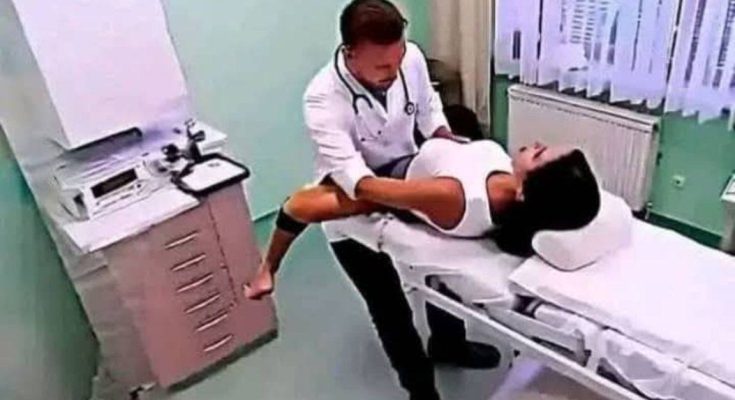This forensic doctor took advantage of the situation without knowing that every lie he whispered into the quiet void of the morgue was being echoed back from the grave.
Dr. Marcus Lyle had always known how to play the system. He wore his white coat like a shield, his calm voice like a weapon. To the outside world, he was the epitome of control — clean-cut, intelligent, clinical. The kind of man you wanted explaining how your loved one died, because he could make death sound like a scientific inevitability instead of something brutal or cruel.
But inside, Marcus was rotting. Not from guilt or regret — those had long since been buried beneath layers of practiced detachment — but from a festering arrogance. He had begun to believe he was above the rules, that he could shape reality with nothing more than a scalpel and a pen. And for years, no one questioned him. His reports were gospel. His word closed cases. It made him feel invincible.
So when Olivia Cheng’s body was wheeled into his lab — young, successful, found in her penthouse suite with an apparent self-inflicted wound to the neck — he didn’t hesitate. The case was a gift. A delicate mystery wrapped in privilege and media interest. Normally, Marcus would follow protocol, but this time, he saw an opportunity to push boundaries.
He altered the time of death by ninety minutes. He noted self-harm indicators that didn’t exist. He omitted the ligature mark just under her collarbone, faint and nearly missed — but not by him. And most critically, he left out any mention of the micro-abrasions on her knuckles, which suggested a struggle. Marcus erased Olivia’s last fight from the record, because the narrative was cleaner that way. A tragic, brilliant woman, succumbing to the weight of her own success.
He never expected anyone to look deeper. Why would they? His credentials spoke louder than any suspicion. He filed the report, signed it with a flourish, and moved on.
But Olivia Cheng had prepared for the worst. Two weeks before her death, she had activated a private failsafe — a continuous loop of encrypted recordings using her prototype device, which recorded biometric data and environmental audio in short bursts. Olivia was no fool. She had received threats — subtle, unnerving ones. Emails from anonymous senders warning her to stop her work. A break-in at her condo with nothing stolen but the hard drives. And then, the feeling — the sense that someone was watching her.
She uploaded her recordings to a private cloud server with restricted access. Only two people had the credentials: Olivia herself, and Julian Kade, her closest collaborator and the person she trusted most.
Julian had been out of the country when Olivia died. The news reached him on a train platform in Lisbon. Suicide, they said. Unexpected, but not impossible. But Julian knew better. Olivia had been close to a breakthrough — a patent on a system that could predict aggressive behavior through biometric trends. She was days away from going public, and now she was gone.
He flew back immediately.
At the memorial, Julian kept quiet, listening. Watching. Olivia’s parents were devastated but resigned. The police were noncommittal. Marcus Lyle, who had never met Olivia in life, stood in a crisp suit before reporters and gave a calm, measured statement. Julian watched him speak, and something in Marcus’s eyes made his stomach turn — not sorrow, not even detachment, but calculation.
That night, Julian accessed the cloud. The last batch of data made his blood run cold.
He heard Olivia whispering in panic. Heard the creak of her apartment door opening, when no one should have been there. Heard her say, “Dr. Lyle? What are you doing here?” And then — silence, followed by a single, sickening thud.
Julian didn’t go to the police right away. He knew better than that. Marcus had friends in high places. He needed proof. He started digging. Interviewed people Marcus had worked with. Quietly re-examined reports of past cases that had been sealed too quickly, too neatly. He found patterns — anomalies buried beneath jargon. Causes of death that didn’t add up, timelines that bent just enough to escape scrutiny. In three other cases, there were whispers from families who’d felt something was off but were too afraid or too lost in grief to question.
And then came the final piece — a parking garage security tape from a building two blocks from Olivia’s. Marcus, walking briskly at 2:13 a.m., gloves on, duffel in hand. Olivia’s official time of death? 3:30 a.m. The time Marcus had written in his report. But now Julian knew that was a lie.
With everything in place — audio, video, inconsistencies in the autopsy — Julian reached out to a journalist he trusted. Amelia Veras, an investigative reporter with a reputation for unraveling tightly bound secrets. Together, they built a story that couldn’t be ignored.
On a rainy Tuesday morning, the headline broke:
“Respected Forensic Pathologist Implicated in Cover-Up of Tech CEO’s Death.”
Marcus never saw it coming.
He was in the lab when they came for him — not police at first, but Amelia, standing outside with a camera and microphone, catching the exact moment his façade cracked.
“What do you have to say about the report you falsified, Dr. Lyle?”
“Were you in Olivia Cheng’s apartment the night she died?”
“Why did you change the time of death?”
He tried to shut the door, but it was too late. The story had gone viral in minutes. His name was trending worldwide. The media, the police, the medical board — all circling now. He was suspended within hours, under formal investigation by the next day.
And as the walls closed in, Marcus Lyle finally understood: he had taken advantage of the silence, of the assumption that the dead could no longer speak.
But Olivia had spoken.
And she was still speaking.





